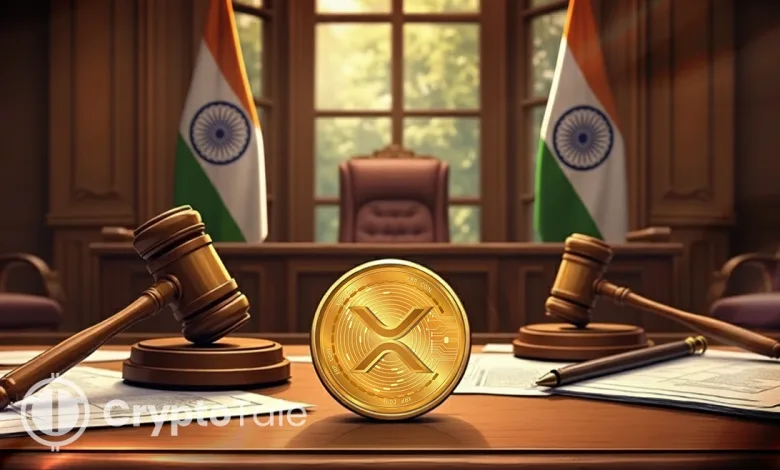India’s Madras HC Upholds XRP as Digital Property in Law

- Madras High Court ruled XRP is a legally ownable property under Indian law after the WazirX case.
- Court grants protection to investors whose 3,532 XRP were frozen post $230M WazirX hack.
- Judgment rejects foreign jurisdiction, sets precedent for crypto ownership rights in India.
Madras High Court has ruled that XRP can be legally owned in India. The ruling came after a case involving frozen XRP assets on the exchange WazirX following a $230 million cyberattack. Justice N. Anand Venkatesh of the Madras High Court recognized cryptocurrency as property capable of being owned, enjoyed, and held in trust.
The petitioner, Rhutikumari, filed a case after WazirX froze her account containing 3,532.30 XRP worth about $9,400. Her account was locked during WazirX’s investigation into the July 2024 hack that drained around $235 million in assets. The court granted her interim protection under Section 9 of the Arbitration and Conciliation Act.
Court Rejects Foreign Jurisdiction
The order stopped the respondents, including Zanmai Labs, from interfering with her account or reallocating her XRP. The judge said cryptocurrencies are digital property and could be held in trust. The ruling offered temporary relief and legal protection until the case’s final outcome was decided.
The judge referred to Section 2(47A) of the Income Tax Act to support his finding. He also cited the New Zealand case Ruscoe v. Cryptopia Ltd., which recognized cryptocurrencies as property held on trust for users. The court determined that the digital assets should have a similar interpretation as in the Indian law in place.
WazirX argued that the matter was governed by a Singapore restructuring plan and not Indian law. The court rejected this argument. It said that the petitioner’s funds came from an Indian bank account and the platform was accessed from India. This created a clear domestic cause of action.
The court indicated that it possessed the entire authority to hear the case. It required Zanmai Labs to secure a bank guarantee of approximately $11,500. The guarantee means that the possessions of the petitioner would not be interfered with until the arbitration is completed. The order also prevented the exchange from reassigning or making use of the assets of the petitioner.
Landmark Ruling in India
The case itself is significant because it is the first case in which an Indian court considers cryptocurrency as property. It proves that digital assets of the investors are legally owned. With this ruling, there is long-awaited clarity in an industry that has been operating without clear law on ownership.
The verdict also reinforced the safety of investment in the crypto market in India. The holders could now protect their assets on legal grounds when the exchanges freeze their resources. The case establishes a legal precedent that separates crypto ownership and unsecured exchange claims.
Related: WazirX Gets Singapore Court Approval to Resume Operations
Experts view this order as a key turning point for India’s digital asset regulation. It signals that courts are ready to treat cryptocurrencies like other forms of property. The decision may encourage policymakers to draft clearer laws on digital asset rights and responsibilities.
The rationale of the court is consistent with international law. The United States considers virtual currency as property and taxes it by the Internal Revenue Service. These courts are able to issue injunctions, freeze wallets, and reclaim stolen digital property. Other comparable strategies are available in New Zealand and Singapore.
India could gain investor confidence through its alignment with these jurisdictions. It demonstrates that nonphysical assets are legally enforceable. There is now a greater legal basis for hack and fraud victims to recover. Real recovery would be based on jurisdiction, collaboration through exchanges, and traceability of funds.
The interim order is a significant move for Indian crypto investors. It also makes cryptocurrencies such as XRP legal in the Indian property law. The ruling is also an indication of a slow shift to controlled ownership rights.




